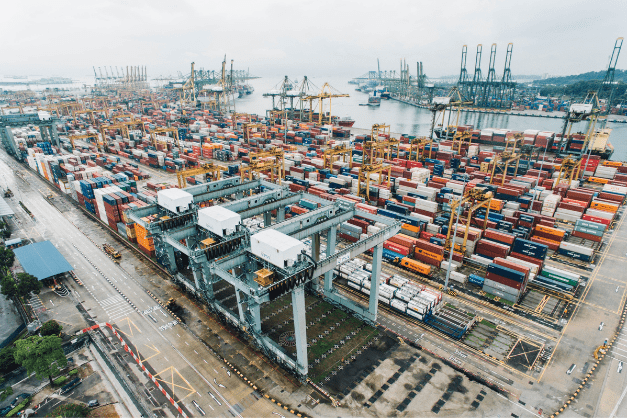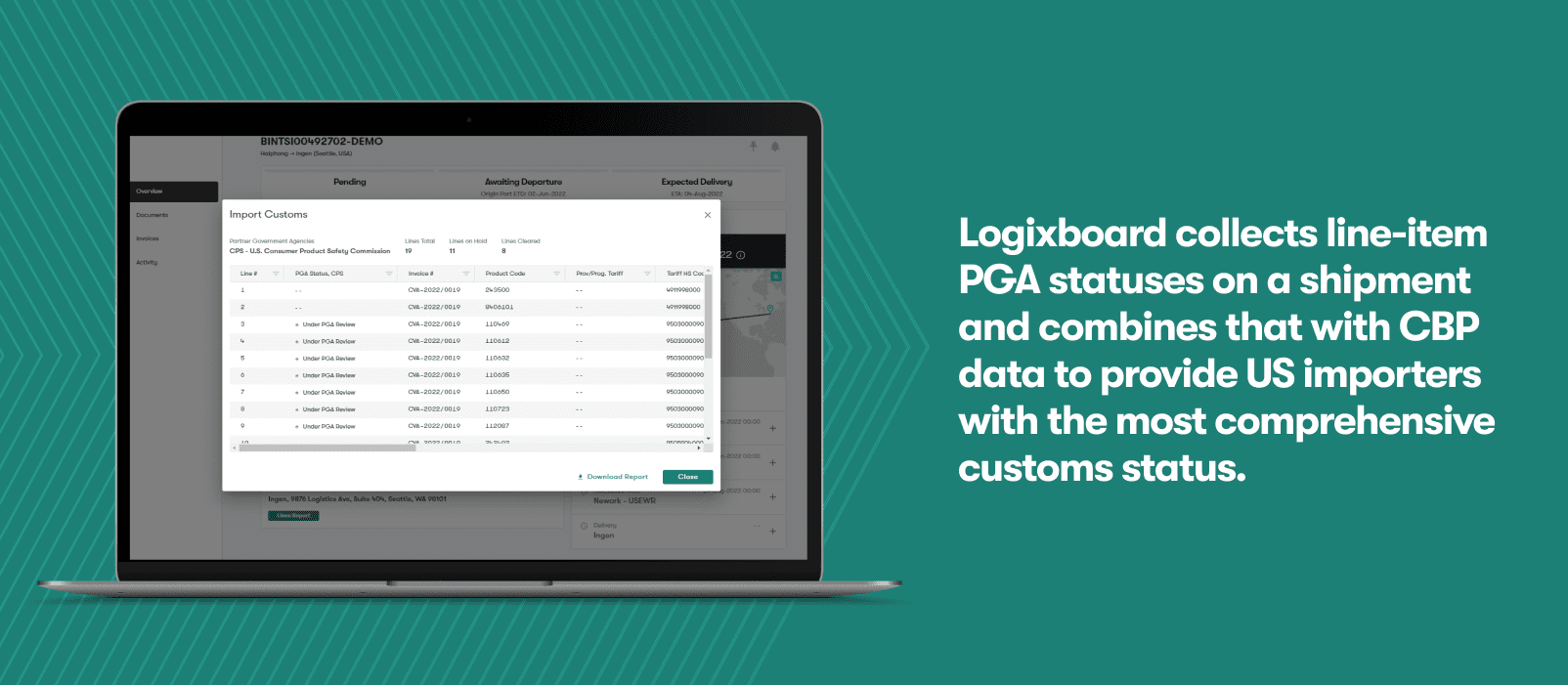In this article
Partner Government Agencies (PGAs) regulate commodities entering the U.S. The types of commodities that each PGA regulates are specified by the agency’s overall goals and jurisdictions. Customs & Border Protection (CBP) is not only managing their own examinations of incoming goods, but it’s tasked with enforcing regulations on behalf of PGAs as well.
Freight forwarders and brokers managing imports into the U.S. have the responsibility of keeping their customers informed on delays that arise from hold/exams like these and any other specifics of their shipment’s status throughout their journey through customs. No matter what is being shipped, that commodity will likely be under the jurisdiction of a PGA. Understanding what PGA regulations products fall under is key to ensuring you avoid any timely holds or exams – and when they aren’t avoided, changes are made accordingly to avoid additional fees.
PGA Hold Visibility
Goods coming into the US may be subject to scrutiny from multiple PGAs. These agencies can act independently to review, clear, or hold goods just as Customs and Border Patrol (CBP) does. Understanding the status of your shipment, or specifically your containers, is vital for shippers managing any resulting delays.
Freight forwarders who can automatically populate the most current status of containers being processed through not only Customs, but PGA holds as well, will be providing the best visibility and customer experience to their shippers/BCOs.
There are countless factors involved that could impact whether your cargo is let through customs without a hold or exam from PGAs. Below are the PGAs importers encounter most often when importing into the US.
Department of Health and Human Services (HHS)
The HHS is the federal department in charge of protecting the health and well being of the American people. Dangerous chemicals, food, medications, and anything else that could potentially harm individuals or a large population are monitored and regulated by this department. Underneath this department, there are two agencies that are common to see involved in PGA holds:
Department of Justice (DOJ)
The DOJ is the federal department in charge of protecting the public and controlling crime. Regulation of imported guns and the prevention of drug trafficking have the DOJ directly involved with some customs holds/exams.
Department of Agriculture (USDA)
Shipments of agricultural products and live organisms fall under the jurisdiction of the USDA and there are three common agencies underneath that umbrella that you’ll see get involved with importing.
Independent Agencies
Several other government agencies play a role in regulating imports but don’t belong to a larger department. These independent agencies are involved with just as much authority on regulating products imported into the US.
The FCC regulates the import and sale of all devices that emit radio frequencies.
The CPSC ensures products do not pose an unreasonable risk of harm to consumers – including products with tendencies to spontaneously ignite, experience mechanical or electrical failure, expose consumers to chemicals, sharp edges, or dangerous other parts.
The EPA regulates the actual import and transport of products that could harm the environment to ensure the process is safe for the environment – products like pesticides, herbicides, fuels, and other chemicals.
Learn more about the types of holds and exams that are common when importing into the US.

